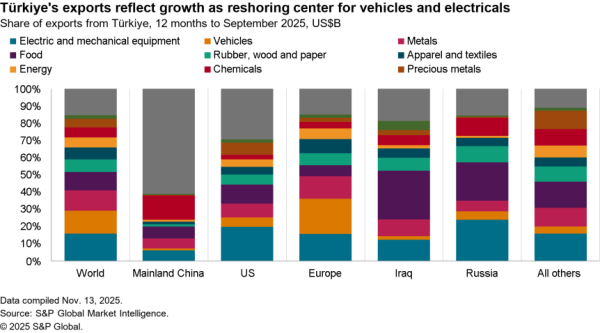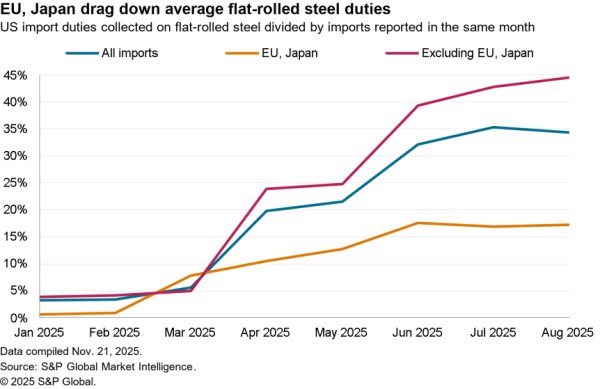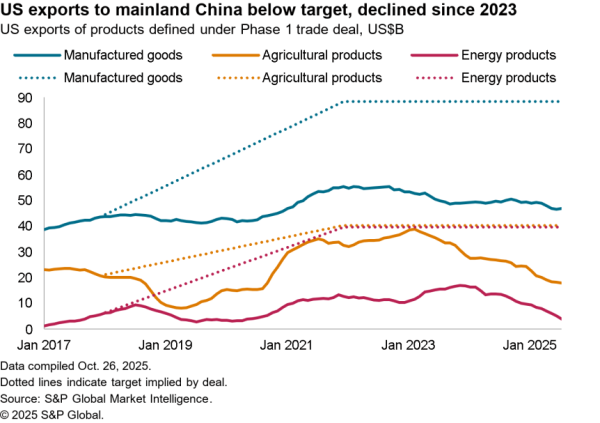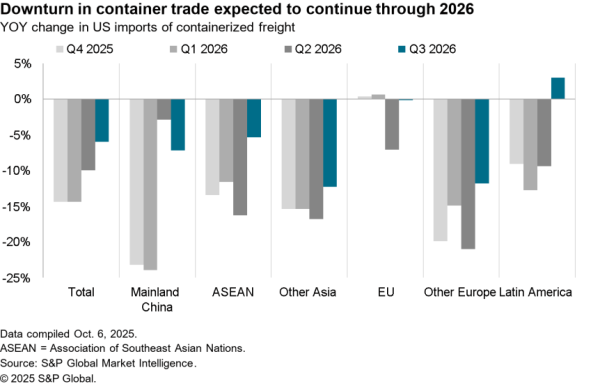The U.S. Court of International Trade has ruled against Thyssenkrupp regarding the process for granting exemptions from section 232 tariffs on imports of steel. Thyssenkrupp had argued that the case-by-case application of exemptions created market distortions which were unconstitutional, though it had not applied for exemptions itself.
The case is just one of a slew that have faced the steel and aluminum tariffs since they were imposed by the Trump administration in March 2018 with a variety of exemptions granted both on a case by case basis and at the country-level, for example for exporters from Canada and Mexico as part of the USMCA negotiating process. It appears unlikely that the Biden administration will remove the tariffs in the near term. Steel and aluminum capacity utilization factors are still below levels defined as being needed for long-term viability of U.S. industry as discussed in Panjiva’s research of Feb. 22.
Panjiva’s data shows that U.S. seaborne imports of steel and aluminum products covered by the section 232 duties that are linked to Thyssenkrupp fell by 41.7% in the 12 months to Feb. 28 versus calendar 2017. While the rate of decline had slowed in Q4’20 to just 1.5% it has since picked again to a 3.6% decline in January and February combined. Shipments from the EU have borne the brunt of the downturn in the past two months with a slide of 29.2%.

Source: Panjiva
Thyssenkrupp has not performed markedly worse than its peers. Total U.S. seaborne imports of steel and aluminum products covered by the section 232 duties fell by 5.6% in January and February combined. SSAB has been an outlier with an expansion of 101.6% year over year in the past two months, though that compares to abnormally low levels a year earlier.
Imports linked to South Korea’s Posco meanwhile saw shipments that dipped by just 0.4% after a 37.5% increase in Q4’20, while Hyundai Steel’s imports have declined by 16.5% in the past two months.

Source: Panjiva




